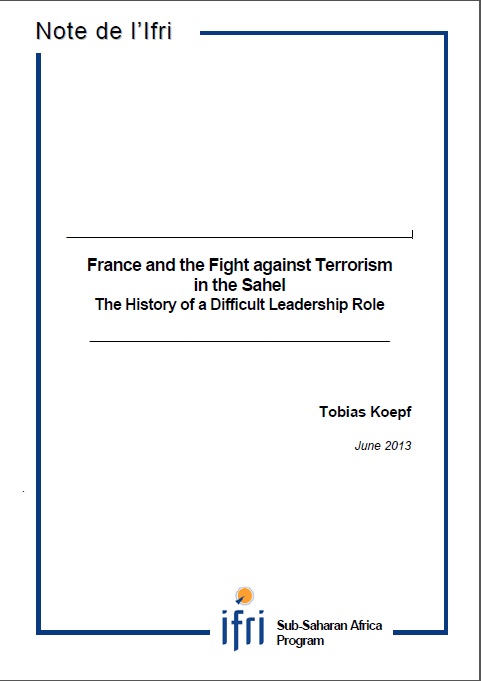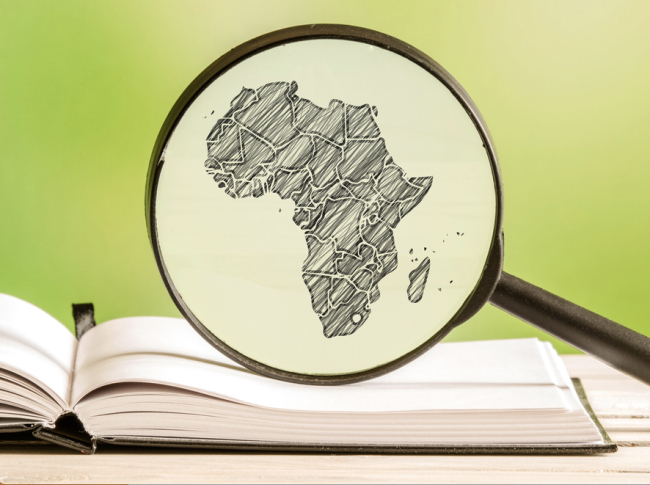France and the Fight against Terrorism in the Sahel: The History of a Difficult Leadership Role

Except for its extreme poverty and the disastrous effects of a series of droughts, the Sahel region has been largely out of the spotlight of international attention in the past. Yet the rise of terrorism and especially the creation of Al-Qaida in the Islamic Maghreb (AQIM) in 2007 brought the region into the focus of world politics. Initially, AQIM"s activities in the Sahel mainly posed a threat to the stability of the Sahelian states themselves. In an effort to internationalize its agenda, however, AQIM also started targeting Western countries.
France, the former colonial power that has close historical links to the countries of the region, has been most affected by AQIM"s activities. Between 2007 and 2011, commandos linked to the terrorist group kidnapped several French citizens, launched bomb attacks on the French embassies in Mauritania and Mali and repeatedly threatened to launch terrorist attacks on French soil. This spurred France to assume a leadership role in international efforts to fight AQIM. The present study gives an overview on the development of French policy in the Sahel over recent years. In a first part, it analyzes how the rise of terrorism in the Sahel brought the region back into the focus of French foreign policy. A second part takes a look at the French response to the threat from AQIM and the difficulties France faces in this context. As will be shown in a third part, these difficulties are also reflected in France’s efforts to lead an international response to the crisis that set Mali in turmoil in early 2012. In a fourth and last part, the study scrutinizes the impact of the French intervention, Serval, on France’s role in Mali and in the Sahel - taking into account developments prior to the end of April 2013.

Available in:
Regions and themes
ISBN / ISSN
Share
Download the full analysis
This page contains only a summary of our work. If you would like to have access to all the information from our research on the subject, you can download the full version in PDF format.
France and the Fight against Terrorism in the Sahel: The History of a Difficult Leadership Role
Related centers and programs
Discover our other research centers and programsFind out more
Discover all our analysesGabon: Has an — Almost — Exemplary Transition Produced a New Political Model?
In two rounds of voting, on September 27 and October 11, 2025, the citizens of Gabon elected the members of both their local councils and the new national assembly. This marked almost the final stage of political transition, little more than two years after the coup d’état that had overthrown the more than five decades old dynastic regime of the Bongos — Omar, the father, who died in office in 2009, and then his son Ali, who is now in exile.
Claiming "The People": Youth Booms, Ailing Authoritarians and "Populist" Politics in Kenya, Uganda, and Tanzania
This study analyses the emergence of so-called “populist” political tendencies in three East African countries: Kenya, Uganda and Tanzania. It builds its analysis on a wider discussion of the term “populism”, its use and applicability in (eastern) African settings before going on to examine the drivers of three cases of populism: William Ruto’s 2022 election victory in Kenya and the “Hustler Nation”; Bobi Wine’s opposition to Yoweri Museveni in Uganda; and John Magufuli highly personal style of government in Tanzania.
The Contradictory Impacts of Western Sanctions on Economic Relations between Russia and Sub-Saharan Africa
How does Russia maintain economic ties with Africa despite Western sanctions? An analysis of investments, trade, and the circumvention strategies deployed by Moscow.
The Revenue Sources Sustaining Sudan’s Civil War. Lessons for the year 2023
Wars require money and resources, and often, most conflicts involve controlling sources of income and supply lines or denying them to enemies. This has been the case in Sudan’s past conflicts and is again as the civil war—between the Sudan Armed Forces (SAF), commanded by General Abdelfattah al-Burhan, and the paramilitary Rapid Support Forces (RSF), commanded by General Mohammed Hamdan Daglo “Hemedti” —has sunk into a protracted conflict.










